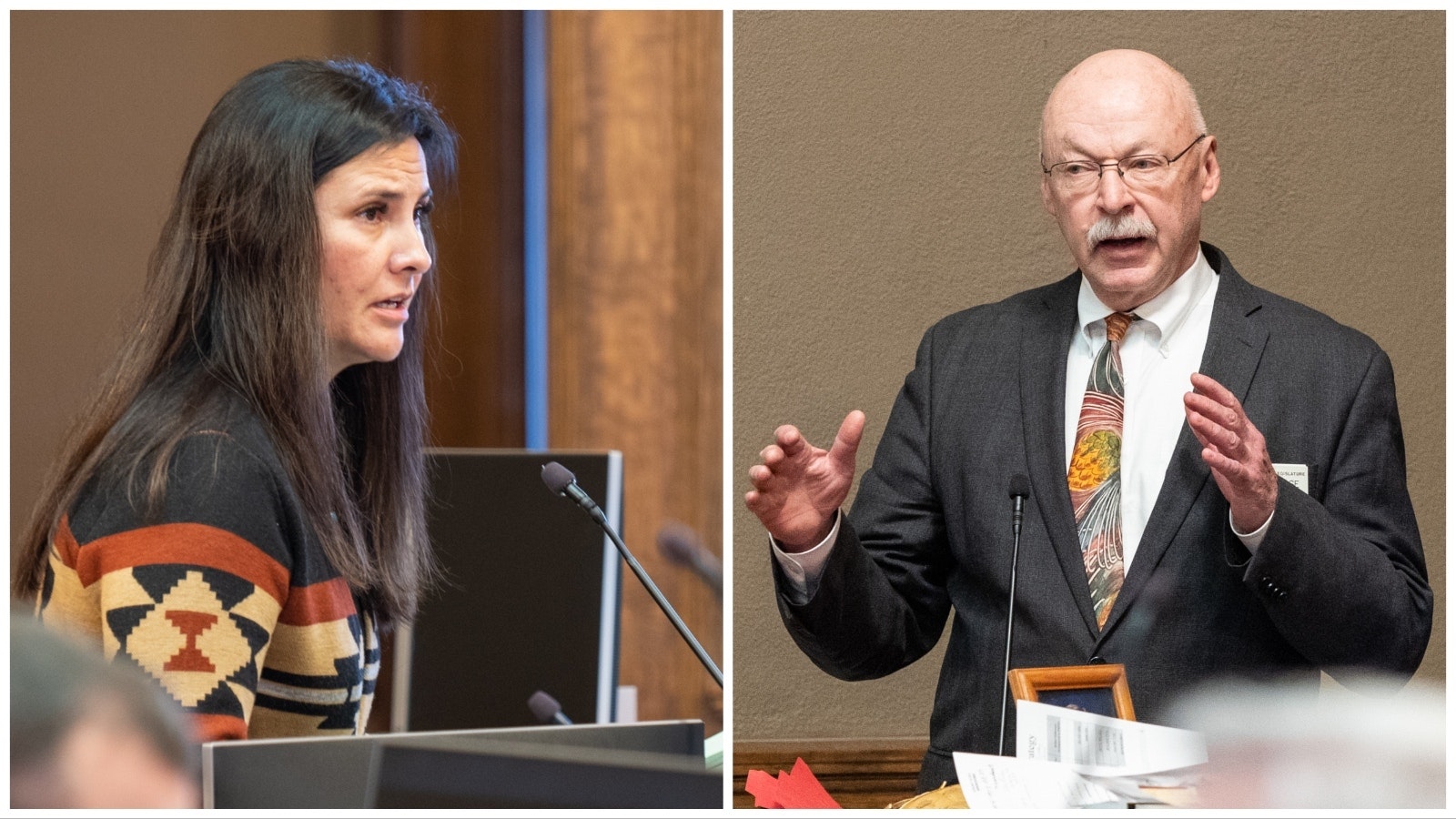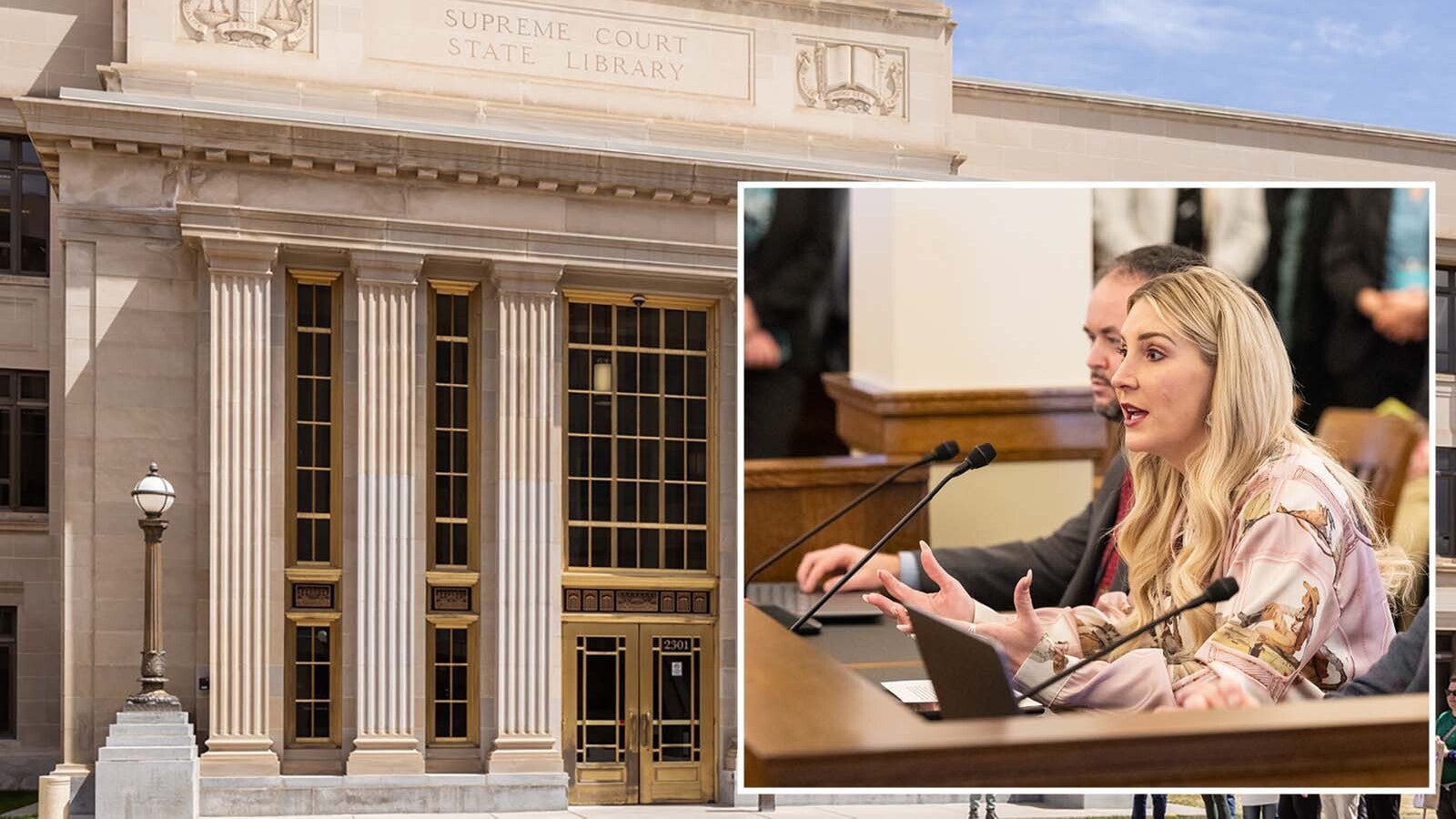Wyoming still has a $40,000 task force intended to protect a law that is safe, for now, from constitutional attacks.
Fearing that the U.S. Supreme Court would overturn the Indian Child Welfare Act, which is designed to keep American Indian foster and adoptive children out of non-native foster families’ homes, Wyoming enacted its own state version of the law in March.
Congress passed the federal law in 1978 to combat forcible assimilation of American Indian children into non-native homes and harsh, sometimes cruel, boarding schools.
The state also built a $40,000 task force to study the federal law and how best to convert it to a state law.
But the Supreme Court on Thursday upheld the federal Indian Child Welfare Act as constitutional.
Wyoming’s rush to codify its own version of the law was, in hindsight, not necessary to preserve it.
Some state legislators disagree on whether the task force should be kept alive.
About That Task Force
The task force no longer has a purpose, and the money that funds it should revert back to the state’s general fund, task force member Sen. Cale Case, R-Lander, told Cowboy State Daily on Thursday hours after the high court’s opinion was announced.
“It’s done. It’s the Supreme Court,” said Case, who co-sponsored the state ICWA version and voted in favor of it. “We’ve got to move on.”
Case said the task force members should send the public money back into the state’s coffers “if we don’t have work to do. And it’s kind of clear we don’t.”
The high court’s opinion upholding ICWA didn’t grapple with a main argument — that the law is racist because it treats American Indian and non-native foster parents differently — ruling instead that the petitioners didn’t have standing to bring that argument.
But beyond that, the court’s 7-2 majority upheld ICWA as constitutional, saying the law doesn’t violate states’ traditional sovereignty over family-law matters; and it doesn’t exceed Congress’ authority to deal with American Indian people.
Actually, No
But task force co-chair Sen. Affie Ellis, R-Cheyenne, disagrees with Case, saying the task force still has work to do, either to expand ICWA’s terms to protect tribal interests even more than the federal law does, or to see how Wyoming can better enforce the federal law.
“Even though the status quo remains, that’s why I think it’s important for us as a state to ask, ‘Are we doing the best job we can? Do we have open lines of communication? And are there ways we can do our job better?’” said Ellis. “These cases deal with some of our most vulnerable children.”
The federal law will not let Wyoming enact a law that is less protective of tribal foster-care interests than ICWA, but it would let Wyoming add on more protections.
Ellis applauded the Supreme Court decision, saying she was "so pleased" to discover it Thursday morning.
Family, Tribe, Then Other Tribes, Then Group Home
Also, ICWA allows for tribal governments to change the law’s placement hierarchy for children.
For example, the federal law requires that an American Indian child taken into protective custody shall be placed with his family or his own tribe, then any Indian tribe, then any Indian-run group home before being placed in a non-native foster home.
If the Northern Arapaho or Eastern Shoshone tribes of Wyoming wanted to, they could change that hierarchy.
Ellis expressed doubt that the tribes would want to do that, but said they’re certainly free to decide either way.
“I think that, given the history of Indian (child) removal … I don’t think a lot of tribes have altered that hierarchy too much,” she said. “Certainly keeping those children close to their home communities is important for children.”
Before the Supreme Court’s ruling, the Fifth Circuit federal court had ruled that sending kids to any Indian tribe or any Indian group home before letting them stay with non-native foster families was unconstitutional.
The high court ordered the Fifth Circuit on Thursday to vacate its earlier ruling.
Just Listening
Ellis said she doesn’t have specific ideas for how the task force should proceed. Its first aim should be to listen to the tribes and the various needs surrounding ICWA’s implementation.
In her past tribal work, she said, “we went to work … with no preconceived ideas of how things should shake out. We listened and we listened.”
Ellis’ task force co-chair Rep. Lloyd Larsen, R-Lander, agreed with her that the task force still has work to do and could help to amend the state law further using the federal law “as a baseline,” he told Cowboy State Daily in a Thursday text message.
“If we don’t expend all of the task force funds they will revert back to the general fund,” Larsen added.
Tribe On Board
The Northern Arapaho Business Council, which is a six-person governing branch of the tribe, is on board with the task force going forward.
The tribal government also praised the Supreme Court’s ruling in a Thursday statement.
“Today’s decision by the U.S. Supreme Court to uphold the Indian Child Welfare Act (ICWA) is a landmark victory for child welfare, Tribal culture and our very way of life,” reads the statement. “This ruling marks a rejection of shameful pre-ICWA practices that saw Native children systematically removed from their homes and communities in order to erase our language, culture and practices.”
The Eastern Shoshone Tribe did not comment to Cowboy State Daily by publication time.
One Meeting Down
The task force met in May in what Ellis described as an informational meeting.
The meeting was not open to the public.
Ellis said the meeting was a recapping of presentations ICWA experts already had made to legislative committees prior.
“We really wanted to make sure (the members) had that baseline of knowledge,” she said. “It was a reiteration of the presentations … and a chance for those members to get caught up.”
The task force consists of the state Department of Family Services director or her designee, a prosecutor, a private attorney in family law, two people appointed by Gov. Mark Gordon at the recommendation of the Eastern Shoshone Tribal government and another two at the recommendation of the Northern Arapaho Tribal government, and two members each of the state House of Representatives and Senate.
Clair McFarland can be reached at clair@cowboystatedaily.com.





